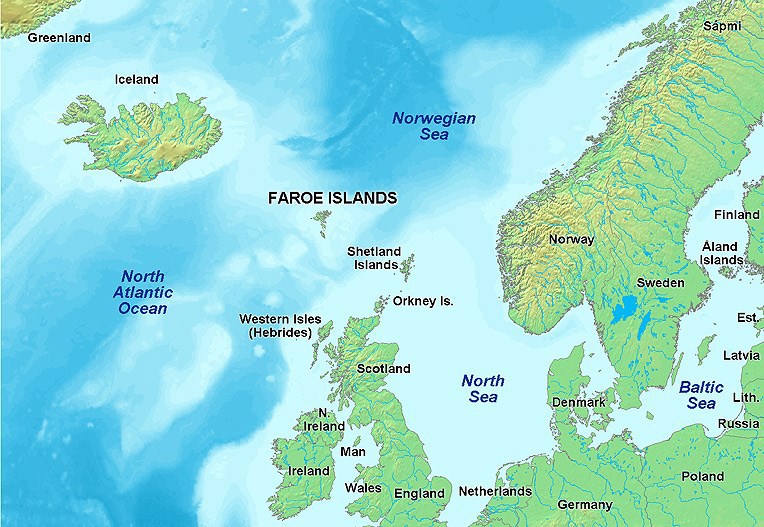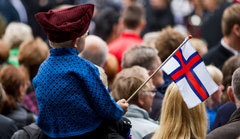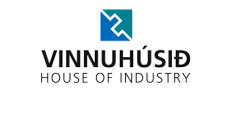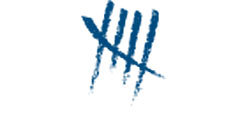
Føroyar - The Faroe Islands
Located half way between Scotland and Iceland in the Northeast Atlantic, the Faroe Islands are an archipelago of 18 mountainous islands, with a total land area of 1,399 square kilometres, a sea area of 274,000 square kilometres and a population of 50,000.
The population is scattered over 17 of the islands, although 40% live in the capital, Tórshavn.
The language of the Faroe Islands is Faroese. It is a Nordic language, which derives from the language of the Norsemen, who settled in the islands some 1200 years ago. The name Føroyar (Faroe Islands) is derived from old Norse and means Sheep Islands, a name given by the Viking age settlers.
Through the centuries, the Faroese have defied the harsh nature and living conditions. Enduring today is a nation in which the living standard is one of the highest in the world. A highly industrial economy mainly based on fisheries and aquaculture continues to flourish, while a Nordic welfare model ensures everyone the opportunity to explore his or her own potential. Faroese maritime expertise is widely renowned and the Faroe Islands export seafood to all six continents.
The Faroe Islands are a self-governing nation under the external sovereignty of the Kingdom of Denmark. Faroe Islands have exclusive competence to legislate and govern independently in a wide range of areas. These include for example the conservation and management of living marine resources, protection of the environment, sub-surface resources, trade, taxation, industrial relations, energy, transport, communications, social security, culture, education and research.
A treaty between the Faroe Islands and Denmark enacted in legislation provides Faroese autonomy in foreign relations. Although Denmark is a member state of the European Union, the Faroe Islands have chosen to remain outside the Union. Accordingly, the Faroe Islands negotiate their own trade and fisheries agreements with the EU and other countries, and participate actively in a range of international fisheries management arrangements and organisations.
Positioned strategically between Europe and North America, the Faroe Islands are only a couple of hours’ flight from the metropolitan centres in Northern Europe. From the Faroe Islands there are daily flights and regular ferry and cargo links to all neighboring countries.
Active participation in all aspects of local community life characterises the Faroe Islands. This contributes to social cohesion and a strong sense of local identity. The Faroe Islands have a highly developed infrastructure: telecommunications and high-speed internet plus a comprehensive road network and tunnel and ferry connections all provide an excellent base for maintaining the economic, social and cultural viability of communities all around the country.
The Faroe Islands have a well-educated population, with free primary and secondary schooling for all and a number of institutions for higher education and research. Many Faroese study and work abroad in a wide range of fields for a period in their younger years before returning home to settle. With the characteristic mobility and flexibility of many island nations, the Faroese people, too, have long maintained and nurtured a broad international perspective in today’s globalised world.



